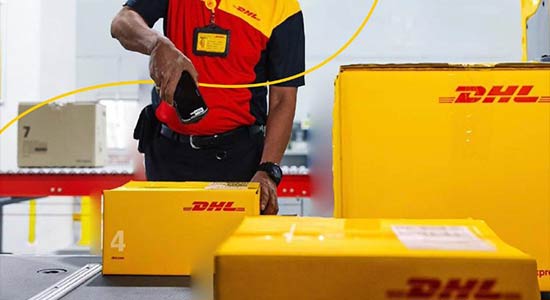Business
Customers lament over DHL Nigeria arbitrary customs duty, bribery requests

Many e-commerce consumers in Nigeria have expressed frustration over what they perceive as arbitrary customs duties and alleged bribery requests, particularly in their dealings with DHL Nigeria. This growing discontent underscores broader systemic issues that affect those importing goods into the country.
A common situation involves customers ordering items from international e-commerce platforms, only to be hit with unexpectedly high customs duties upon their arrival in Nigeria. For example, a customer who ordered two t-shirts valued at $350 found themselves facing a customs duty charge of ₦180,000 (approximately $234), nearly half the cost of the items. Additional charges, including DHL administrative fees and VAT, brought the total amount payable to an eye-watering ₦182,833.25.
DHL Nigeria often justifies these high charges through increased assessments based on fluctuating exchange rates and standard tariffs. However, many customers find these charges to be excessively high compared to the value of the items purchased, leading to significant dissatisfaction.
The process of contesting these duties can be challenging. Customers frequently contact the online retailer for refunds and lodge complaints with customs authorities. Unfortunately, these efforts often face resistance, as the retailer and customs officials may insist that the charges be paid. In some cases, customers may request that their packages be returned to the sender through DHL to avoid the high duties. “What’s annoying is all they need to do is return the package, but insiders have told me that they do this so they can appropriate these items to themselves when customers opt not to pay the exorbitant charges,” said one frustrated customer. Unfortunately, these requests are often denied, leaving them with few viable options.
Moreover, there are growing concerns about potential corruption within the customs process. Allegations of bribery and other corrupt practices have surfaced, suggesting that some individuals may be seeking bribes to expedite or facilitate the release of parcels. These issues contribute to a significant erosion of trust between customers, DHL Nigeria, and customs authorities.
In a bid for resolution, customers contact DHL through various channels, including email and social media, expressing their unwillingness to accept the items and their desire to return them without incurring customs duty. Despite clear communication, DHL’s response typically indicates that the parcel will be moved to the Customs government warehouse unless the duty is paid, showcasing the company’s inflexible stance on the matter. One customer shared a response from DHL, stating, “Dear ######, Good morning. Please be informed that I called the phone number on the waybill, but it is not connecting. The shipment with the subject waybill has been moved to the customs warehouse due to the non-payment of customs charges. You can visit the below office address for self-clearance with Customs.” This email was sent after repeatedly asking DHL to return the items.
The lack of transparency in how customs duties are assessed and the perceived need for bribes to navigate the system have prompted many customers to voice their grievances publicly. Social media platforms have become a venue for sharing experiences and seeking support, amplifying calls for regulatory intervention and reform.
These ongoing issues also have broader implications for the growth of e-commerce in Nigeria. High customs duties, unclear duty assessments, and bureaucratic obstacles in returning unwanted items create barriers for consumers who wish to shop from international platforms. These challenges affect individual buyers and hinder the expansion of e-commerce in the region, limiting access to global markets and impacting the overall shopping experience.
The hope for many consumers lies in the intervention of regulatory bodies to address these systemic issues. Ensuring fair and transparent customs processes and curbing corrupt practices are essential to protecting consumers and fostering a more conducive environment for e-commerce growth.
The ongoing issues with customs serve as a stark reminder of the systemic problems plaguing customs processes in the country. It underscores the urgent need for reforms that promote transparency, fairness, and accountability to protect consumers and foster a conducive environment for e-commerce growth.











